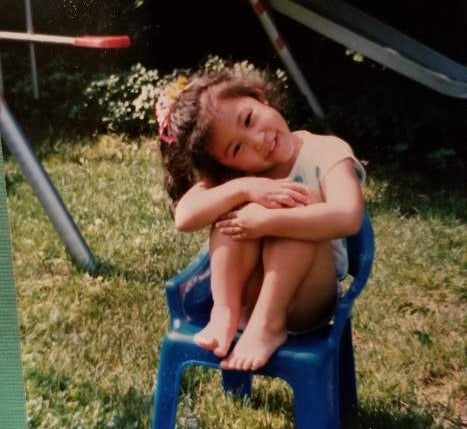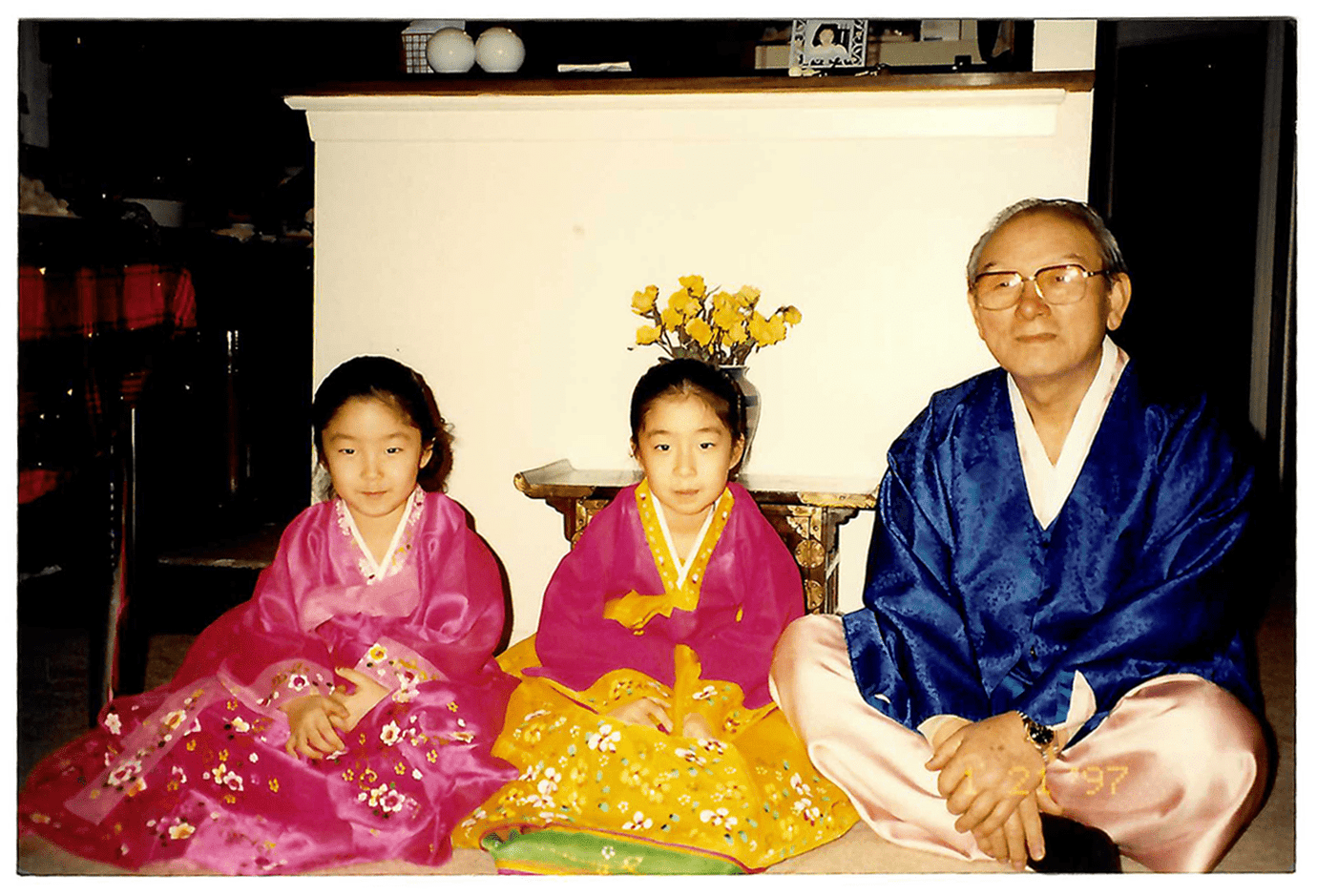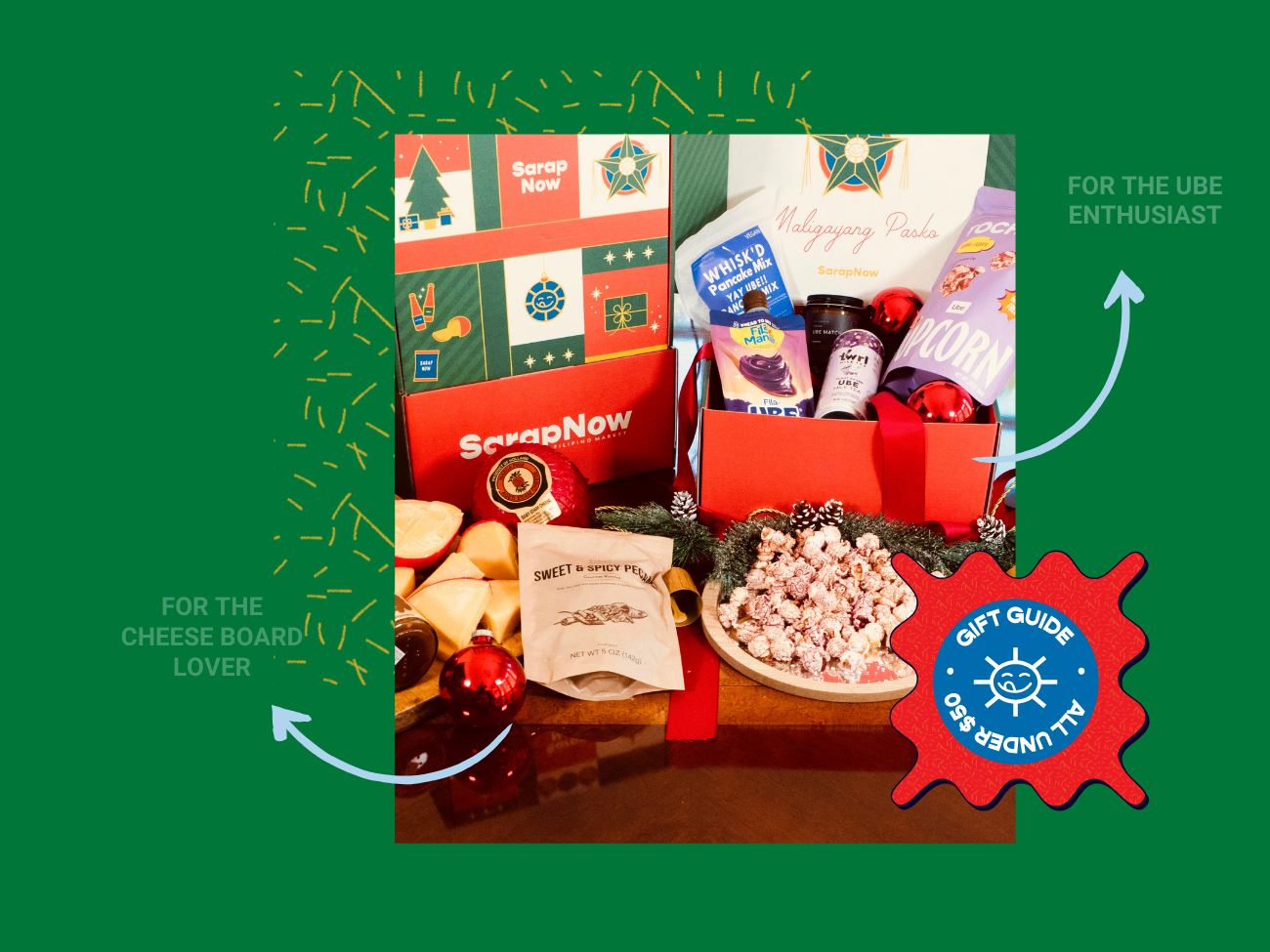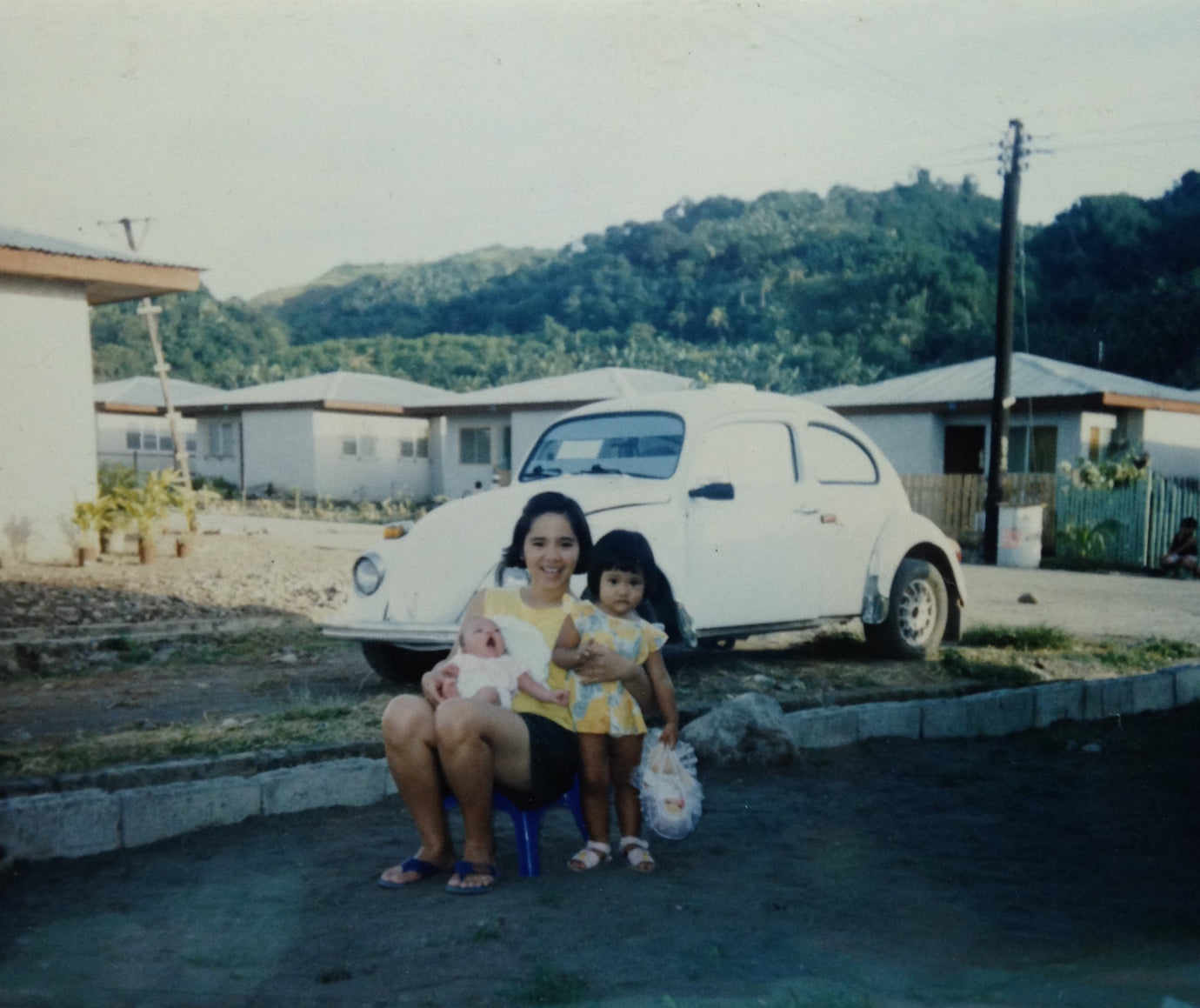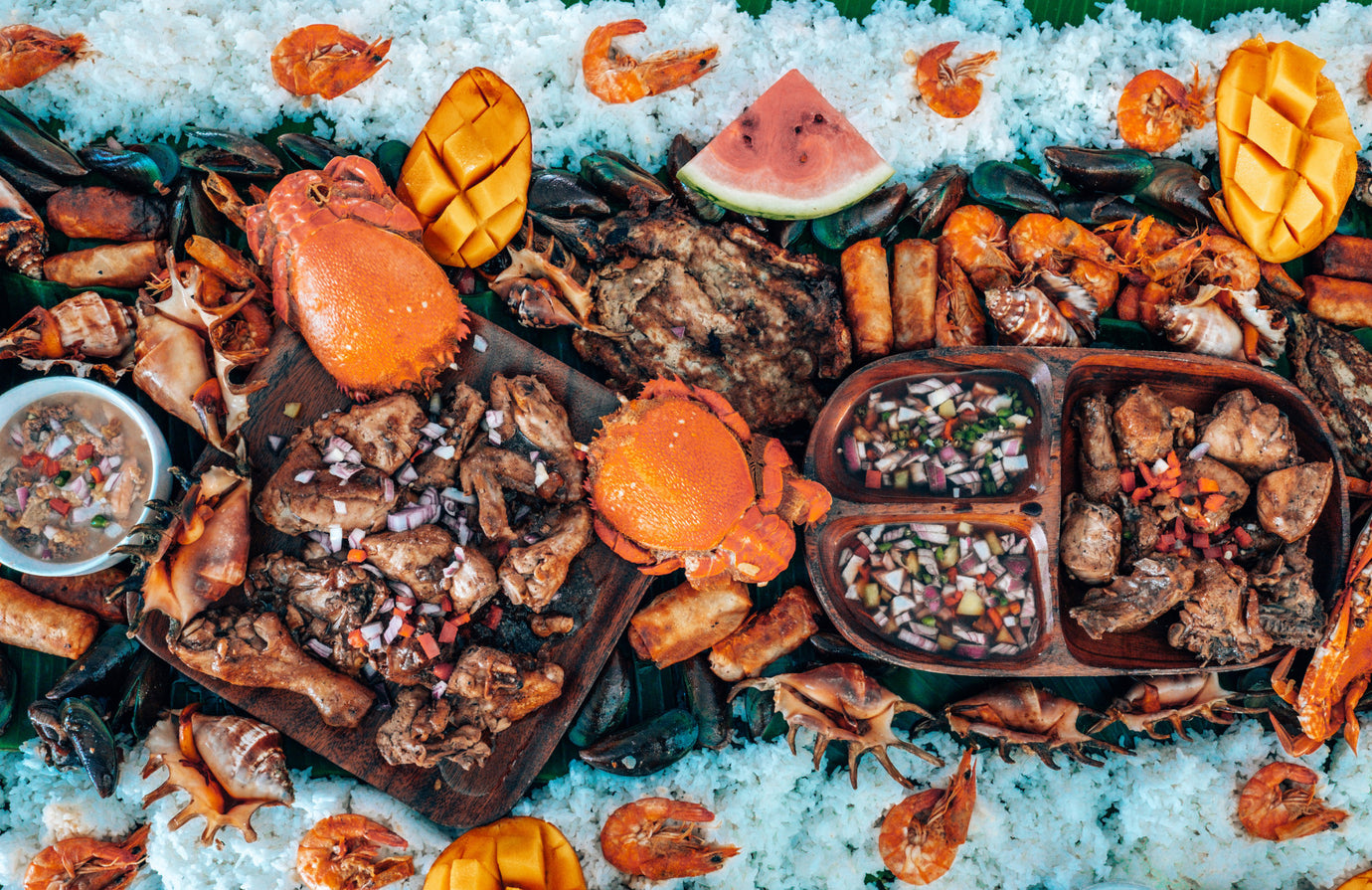
Source: Jane Dua
As a teenager, Jane Dua often felt like an “other.” At school, she was labeled “Jane the Asian.” At her Korean after-school program, she was told she was “too white.” Straddling the line between two worlds that didn’t see her for who she was, she learned self-love and self-acceptance elsewhere – from the support of close friends who became like family.
Now, she’s bringing her story full circle with her brand of sustainable fine jewelry. For Jane, jewelry is a reflection of who you are and what you believe in. It allows you to unapologetically embrace your identity and make a positive impact on the world around you.
She named the brand Nunchi, a Korean word meaning “eye” and “force/power.” It’s the art of reading how others are thinking and feeling.
Read on to learn how Jane harnessed her power – from growing up in Queens with her single immigrant Mom to her decade-long jewelry career and transforming a hobby into a mission-driven business rooted in her Korean American identity.
This interview has been edited for length and clarity.

Source: Nunchi
Tell us about yourself - your name, pronouns, and your brand. Do you identify as AAPI or an immigrant of Asian heritage?
My name is Jane Dua, my pronouns are she/her/hers, and my brand is Nunchi. It's a heritage and purpose-driven, sustainable, fine jewelry brand on a mission to redefine luxury.
I identify as AAPI! I am a first-generation Korean American. I grew up in Queens with a single mother who immigrated from South Korea when she was in her twenties.

Source: Jane Dua
What was your experience like growing up in America?
Growing up in America, I was torn between two worlds.
In one world, I was the minority in predominantly white spaces. Up until high school, I was usually the only Asian in the classroom. My ethnicity was always brought to the focal point of conversation, whether or not it was relevant to the topic of discussion. It’d be the punchline. The butt of the joke. It was always “Jane the Asian.” Or “Jane the Korean.” It was never Jane as a person – and I grew to resent that.
My mom would pack Korean lunches for me and when I unwrapped them, all my teachers would come over and fawn over the meal, exclaiming how great the “sushi” looked when it wasn't sushi. When you deal with microaggressions like this, over time it makes you want to hide who you are because it is a constant focal point.
Conversely, I grew up in a second world where I was surrounded by other Korean immigrants and first-generation Korean Americans. My first big exposure to the Korean American community was in high school when I started going to a Korean after-school program in Queens. Everyone there looked like me, grew up like me, and ate the same food as me.
But even in these spaces, I never felt like I truly belonged. They would tell me that I was “too white.” That I “spoke differently.” I never understood what that meant, and I didn't know if that was a good or bad thing.

Source: Jane Dua
I grew quietly ashamed of who I was. I never liked attention and wanted to be a wallflower. I did not enjoy talking about my roots. I longed to be the same as everyone else.
I felt the most supported when I was with my friends. Most of my blood relatives are in Korea, so I grew up with only my mom and my brother. Having such a small family, I surrounded myself with friends who were like family.
When you lack self-esteem growing up, it's the people that you keep close that help bring confidence out of you. They taught me to self-love. To self-accept. In those moments when you’re caught up in doubt or fear, your support network comes through for you and shows you that there's more to you than what you initially believed in. The relationships I’ve cultivated helped me move forward in life and learn to accept who I am.

Source: Jane Dua
Throughout my journey, I started to learn to love who I was and where I came from. I harness that power instead of hiding behind a screen.
That's what brought me to Nunchi today. Our whole mission is about the impact that we have on other people and the world. I want people to realize that jewelry is not just about making a fashion statement. It's a reflection of who you are and what you believe in. Many of my products are tied to my identity.
Instead of seeing my upbringing as a source of shame, I create products that make my identity a focal point. I want others to learn to embrace themselves and tell their story through my products.

Source: Jane Dua
Do you remember the first time you felt represented in your career or the fashion jewelry industry? Tell us about those memories and what they meant to you.
Surprisingly, I don't remember being fully represented in my 12-year jewelry career. During the pandemic, I saw all these brands touting diversity initiatives and hopping on the sustainability bandwagon. I got frustrated because if you dug deeper into these objectives, they weren’t doing anything to activate change within the business. They weren’t supporting these causes in a holistic way.
I started to feel represented once I became an entrepreneur and began connecting with other AAPI founders who have fully embraced their identity and embedded it into their brand DNA. It's been so empowering to see AAPI representation in traditionally exclusionary spaces. I've been very fortunate to collaborate with AAPI brands that have a strong point of view like Kitsby, Uproot Teas, and Sarap Now!

Source: Jane Dua
What inspired you to create Nunchi? Walk me through what led you to those moments.
The journey is never a straight path. I graduated from Cornell with a major in government and a minor in communications. When I first went to college, I honestly thought the only career routes were either law or medicine.
I ended up getting involved in a lot of volunteer work for nonprofit organizations and it fueled my passion for giving back to the community. I loved witnessing how the fruits of your labor can make a direct impact on people.
When I graduated, I switched gears to follow my passion for fashion and got my first job with an up-and-coming jewelry designer in the e-commerce space.
I was the first employee she hired and I helped her build out that business from the ground up. We were very fortunate to collaborate with big names like Rihanna with Fenty Puma, Moschino, and Donna Karan.

Source: Jane Dua
After I stayed there for about 10 years, I was offered a position at a jewelry startup for three months. Then the pandemic hit. It was already a lean team, so I ended up getting cut in the first round of layoffs. During the pandemic, I underwent a lot of self-reflection to figure out how I could give back to the community while utilizing my skillsets.
I started reaching out to immigrant-owned and family-owned jewelry suppliers in New York City that were struggling. They were sitting on all this inventory that would eventually be trashed, so I started buying unused fashion pieces, taking them apart, and upcycling them by hand. I made them into multifunctional body chain wear, mask chains, and sunglass chains, which were trending at the time.
So, the brand started as a hobby to help out these small importers and exporters. I also wanted to be mindful of sustainability, transforming what other people considered waste into usable products.
I made an Etsy store called Chained by Jane. My friends didn't even know I was doing it.

Source: Jane Dua
Then I hopped on a call with my best friend Michelle, who also had a decade-long career in the retail industry.
With Michelle’s support, I was able to see that Nunchi could be so much more. Today, Nunchi has evolved into a community that believes in the power of self-expression and choice.
In what ways has being Asian American impacted or inspired your journey as a founder?
My roots and my upbringing inspired the concept of Nunchi. It’s a part of our brand's mission. We advocate for community and representation. We work directly with suppliers and artisans in New York City that are immigrants or first-generation Americans to handcraft the pieces. We want to make sure that every piece that we create pays homage to New York craftsmanship and also my roots as a daughter of an immigrant.
I've always wanted Nunchi to go beyond quality jewelry and accessories. Beyond great and meaningful products, we also want to be a platform where we talk about identity, well-being, and wellness.

Source: Jane Dua
It's really important to have these discussions so that we're fostering a safe space where there's community representation and stories by people who are proud of their identity.
My Asian American roots are so impactful because it's part of our brand DNA and it bleeds through every aspect of what we do. We're not doing everything purely for profit as the focus – we want it to be meaningful all the way through.
So when we say sustainable, it doesn't just mean using recycled metals, it means making sure that we're producing at low batches and doing made-to-order. We also work one-on-one with our customers to build their ideal jewelry piece, and we want them to feel like custom, luxury jewelry is accessible.

Source: Jane Dua
Tell me about a challenge you faced to get to where you are today, and how you overcame it.
One of the challenges I still go through to this day is speaking to those who don't understand Nunchi’s mission and why it's important. I've met people at conferences and told them about our brand and what it means for people to have access to creating jewelry that represents them fully. I've been met with skepticism and confusion. Sometimes people say that they don't understand why my work even matters at all.
I overcome challenges by drawing strength from the immense support I receive from my community, loyal customers, and fellow brands. While there will inevitably be naysayers along the way, I firmly believe in the significance of cultivating a supportive team that not only provides emotional encouragement but is also capable of offering sincere and constructive feedback. This invaluable network has allowed me to objectively evaluate my business and validation.
While our mission is complex - topics like sustainability or diversity are not something that you can condense into a few short words – being able to meet those challenges and also prove that the business is succeeding despite these obstacles is important.
AAPI representation matters. Why does it matter to you? What do you think needs to happen to make more progress with representation?
It matters so much. On a singular level, representation helps people who are struggling with loving or accepting themselves find that self-acceptance and self-love. Exposure to brands or people that look like you can be really powerful in shifting your life perspective and the way you see yourself and others.
On a broader scale, having exposure to representation only makes you a more well-rounded and accepting person. It's super important to surround yourself with people that are different than you so that you're not in an echo chamber. It’s good to constantly challenge your thoughts and beliefs because it helps you evolve as a person. I would never want to say that the person that I was 10 years ago is the same one that I am today.
To make more progress, we need to uplift and advocate for communities and spaces that put AAPI voices and stories at the forefront. By doing that, we need to continue highlighting AAPIs in conversation.
Representation shouldn’t be one moment – it should be a continuous movement.
What we can do as individuals is listen and highlight these stories. Organizations with larger reach should make it part of their mission to become a platform for community and representation and stories. Amplifying marginalized voices and speaking out on critical issues is only the first step to dismantling deeply entrenched inequalities in our society and economy.
Do you have any tips for aspiring AAPI makers who want to start their own businesses?
Be okay with always being a student.
Learn as much as you can. Whether that's market research, seeing industry trends, or even surveying your family and friends about your business idea. Be open to the fact that you're going to be a student of everything and master of none.
Surround yourself with a good support group.
Like I said before, having family, friends, and peers who can be honest and supportive, but also critical, is fundamental to entrepreneurship.
Build connections with people in your industry and other industries
I’ve learned that to succeed as a business owner, one element that helps is having connections. The AAPI community has given us the most support – especially now with the rise of AAPI brands rooted in culture. Being able to lean into those relationships and build them out could lead to fruitful partnerships, brand collaborations, or even just peer-to-peer advice that could be instrumental in building your business.

Source: Jane Dua
What advice would you give to a younger version of yourself?
The best is still yet to come. When I was younger, I had a lot of fear of the unknown. It still exists today, but if I could just give my younger self a pep talk, I’d let her know that life will be challenging, but at the same time so rewarding and so fulfilling. It's worth every hurdle. Don’t worry.
What’s something you love about your culture that you wish more people knew about?
Korean Americans are very supportive of each other! As soon as I meet another Korean American founder, we connect on so many different levels just because we share the same roots. I've had such a wide range of support from the community – from emotional support to helping me overcome a business challenge.
When we first launched our Made In New York collection, we were looking for small businesses that would offer a space for our photo shoot. The only businesses that offered help were Korean-owned. Once they found out I was Korean American, they were willing to tap into their resources to help make our vision come true.

Source: Jane Dua
What’s your favorite childhood snack?
My favorite was Yakult, the probiotic yogurt drink. My other favorite snack was Marine Boy shrimp crackers. They're shaped like sea animals! I was obsessed with those.
Shameless plug time! What’s next for you? Anything else you’d like to share?
Keep an eye out for upcoming brand collaborations, new launches, and in-person events. We're going to have an upcycling workshop and also build-your-own jewelry events throughout July and August. Follow us on Instagram at @livenunchi or subscribe to our newsletter for details!
I’m excited about the upcycling workshop because it’s a way for us to pay homage to the brand’s roots since we started by upcycling unused jewelry and materials. We’ll supply guests with the tools to DIY their own items like a sunglass chain, bag chain, and more. We want to give more people access to custom jewelry at an approachable price point, while also having fun and being creative.
Check Out Nunchi

Source: Jane Dua
Take a look at Nunchi in the Sarap Now marketplace. Each piece of jewelry pays homage to New York craftsmanship and Jane’s roots as a daughter of an immigrant.

